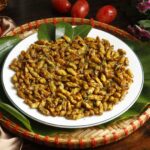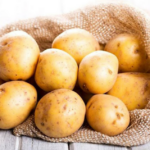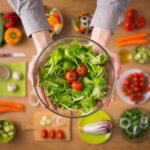1. Fruit Smoothies and Shakes

Breakfast Habits That Harm Your Liver
Many believe that drinking fruit smoothies in the morning can boost health and aid digestion. In addition to feeling full, consuming a lot of fruit at once can also make one feel energized and refreshed.
However, excessive fructose from fruit can lead to fatty liver disease, especially when smoothies contain added sugar or are blended with milk. These drinks not only increase the rate of sugar absorption but also cause blood sugar levels to spike, reducing the liver’s glycogen storage time and placing a burden on the organ.
2. Pastries
These breakfast treats are readily available and have become a common morning meal for many. However, most pastries are made from refined white flour and sugar, which are converted into glucose by the body.
After a long night’s sleep, blood sugar levels are typically low, and consuming refined carbohydrates can cause a sharp rise in glucose levels. This stimulates insulin secretion, leading to abrupt changes in blood sugar, and an increased feeling of hunger due to the body’s heightened absorption of carbohydrates.
Moreover, excessive consumption of carbohydrates and sugar can lead to obesity, a risk factor for liver disease. High-sugar foods can elevate neutral fat levels and promote fatty liver disease, and if this condition persists, it can progress to cirrhosis.
If you have a sweet tooth or are short on time in the mornings, nutritionist Kim So-heung recommends opting for whole grain bread instead. While it may not taste as good as white bread, it slows down digestion and prevents the abrupt changes in blood sugar levels mentioned above.
Additionally, pairing bread with vegetables and eggs can further reduce the negative impacts of blood sugar fluctuations.
3. Crispy Breakfast Cereals

Breakfast Mistakes
Milk and crispy breakfast cereals are a popular breakfast choice for many due to their convenience and satisfying crunch. However, to enhance the flavor of these cereals, manufacturers often add sugar, sometimes up to 30%, turning them into culprits of high blood sugar levels.
Some breakfast cereals are marketed as whole grain or packed with dried fruit, which may seem like healthy options. Yet, a closer look at the ingredients reveals that they contain just as much sugar as their sugary counterparts.
Therefore, when choosing breakfast cereals, pay attention to their sugar content. Additionally, include carrots and other fiber-rich vegetables in your diet to effectively minimize potential health risks.
4. Coffee
In today’s fast-paced world, coffee has become an indispensable morning beverage for many, helping them stay alert and focused. Some even believe that adding sugar and milk to their coffee provides the necessary calories to feel full without the need for breakfast.
However, this practice turns coffee into a culprit of lower esophageal sphincter relaxation, especially for those with acid reflux or stomach ulcers. The high sugar and milk content can also cause abrupt changes in blood sugar levels, overburdening the liver.
While moderate coffee consumption can aid the liver in detoxification, excessive intake can have the opposite effect, hindering liver function, especially for those who regularly take painkillers.
Therefore, if you can’t start your day without a cup of coffee, nutritionist Kim So-heung recommends drinking one to two glasses of water before your morning brew to mitigate its harmful effects and ensure you get energy from other breakfast foods.
1. Eating too much: Overconsuming food in the morning, especially carbohydrates, can overload the liver and lead to non-alcoholic fatty liver disease.
2. Skipping breakfast: This habit can cause blood sugar spikes later in the day and put stress on the liver.
3. Eating too many refined carbohydrates: Refined carbs like white bread, pastries, and sugary cereals can cause blood sugar spikes and increase the risk of non-alcoholic fatty liver disease.
4. Not eating enough protein: A lack of protein at breakfast can lead to an insufficient feeling of fullness, causing overeating later and putting stress on the liver.
– Include a moderate amount of complex carbohydrates, such as whole grain bread, oats, or quinoa.
– Ensure an adequate protein source, such as eggs, lean meat, or plant-based proteins like tofu or beans.
– Add healthy fats like avocado, nuts, or olive oil.
– Limit refined sugars and highly processed foods.
– Include liver-supportive foods like garlic, citrus fruits (for vitamin C), and green tea.
– Practice portion control and listen to your body’s hunger and fullness cues.
– Scrambled eggs with avocado on whole grain toast
– Greek yogurt with berries and a handful of almonds
– Oatmeal cooked with almond milk, cinnamon, and topped with nut butter
– Tofu scramble with vegetables and quinoa
– Green smoothie made with spinach, banana, almond butter, and plant-based milk
– Buckwheat pancakes with cinnamon, topped with fruit and a drizzle of honey
– Liver paté on rice cakes with a side of citrus fruit
“Two Leaves to Help Control Blood Sugar: A Common Ingredient and an Unsung Hero.”
“Recent medical research has unveiled the potential health benefits of two particular types of leaves – guava and cinnamon leaves. Both leaves contain flavonoids, which are known to aid in the treatment and prevention of diabetes when regularly consumed as a herbal tea or infused drink. This natural remedy offers a promising approach to managing this prevalent disease.”





































